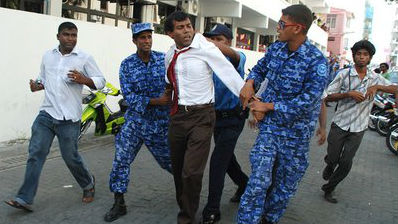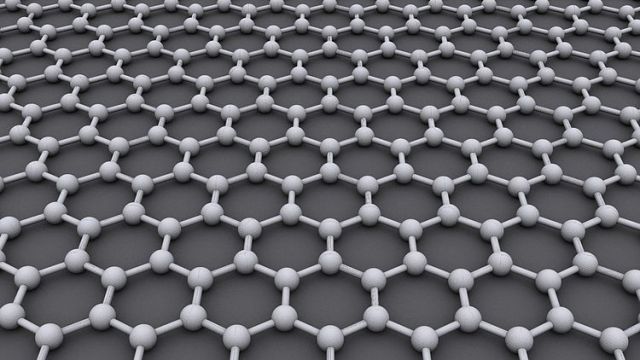Democracy Crushed; Elected President Arrested; World Wrings its Hands

Bernard Savage, Head of the EU Delegation to Sri Lanka and the Maldives said: “At this stage, given our information, we would not say that there has been any legal infringement of constitutional forms. We are not taking sides but, as the High Representative Cathy Ashton has made clear, what we support is the constitutional order, the rule of law and the continuance of democracy, and we expect all parties to refrain from violent actions and inflammatory rhetoric in order to ensure that the democratic transition of the Maldives continues.”
In 1956, as the British and the French launched their ill fated bid to seize back the Suez Canal from General Nasser, the Soviet Union used this as cover to send in its tanks to crush the Hungarian uprising. As the World focussed it’s fury on the British and French for not comprehending that the age of empire was over, the Hungarian leader, Imre Nagy desperately appealed for help. He did so in vain.
In 2012, as the world watched the Syrian regime roll in tanks to crush, kill and maim its own civilians in grotesque numbers, a bunch of corrupt gangsters staged a coup d’état in the small Indian Ocean state of the Maldives. The democratically elected president, Mohamed Nasheed, was forced to tender his resignation, as elements of the police force sided with members of the dictator era regime, Islamic fundamentalists and grubby businessmen happy to sell their souls and Maldivian democracy for a juicy cut of business to come.
In Britain, the former colonial power, which played host to Mohamed Nasheed when he headed up the democratic opposition in exile, the House of Commons All Party Group on the Maldives went through the motions, waxing on about the importance of democracy in the Maldives while parading the accepted wisdom that Nasheed had somehow stepped down of his own volition, and been replaced by his vice president.
Prime minister David Cameron, despite having boldly declared that “Mohamed Nasheed is a friend of mine”, a few months back echoed this pusillanimity with his own: “this country does have strong links with the Maldives”, said Cameron, onion in hand, “and a good relationship with President Nasheed, but we have to be clear. President Nasheed has resigned, and we have a strong interest in the well-being of several thousand British tourists and in a stable and democratic government in the Maldives.”
On the basis of that performance, just who would want to be a friend of David Cameron? Yet news that Nasheed had been picked and beaten up by some the thugs who had overthrown him had already been beamed around the world by the Opposition Maldives Democratic Party before Cameron had risen to his feet. It had got to the United Nations, and the UN Secretariat, and it most probably reached the EU Commission, although the statement released on behalf of Baroness Cathy Ashton condemning the coup was as flaccid as that from Cameron. Later in the day, pictures of a brutally beaten chairman of the MDP Party emerged, followed by YouTube video of the police standing over prone, blooded bodies in the streets of Male.
I confess an interest. I have known Mohamed Nasheed for many years, although not nearly as well as my old school friend David Hardingham, who with others kept the flame for democracy alive in the Maldives when others were just interested in the place as a tourist resort. At my old newspaper, Tribune, we supported Nasheed’s brave campaign for democracy against the Gayoom dictatorship, especially when Nasheed was arrested and tortured. When that dictatorship was sufficiently brow beaten to allow the first ever democratic election in 2009, Mohamed Nasheed was elected president. But his problems persisted with a judiciary stuffed with Gayoom’s cronies and Gayoom’s son, who built alliances with dodgy businessmen and hard line Islamacists, some of who had been trained in Saudi Madrassahs. They were bent of recreating their old police state kleptocracy.
Yet whatever the provocations, president Mohamed Nasheed would never give in to those who urged that he take a tough line with those who were now clearly bent on seizing power by violence. He has paid the price for remaining true to his non violent, democratic principles. The ‘Maldives Spring’ pre-dated that of the Arab Spring by six years, and the president soon became an acclaimed international figure, sometimes referred to as the “Mandela of the Indian Ocean”. He held one of his first cabinet meetings under water, in order to make the world sit up and take notice of global sea level rises; rises that threaten to inundate the Maldives altogether.




